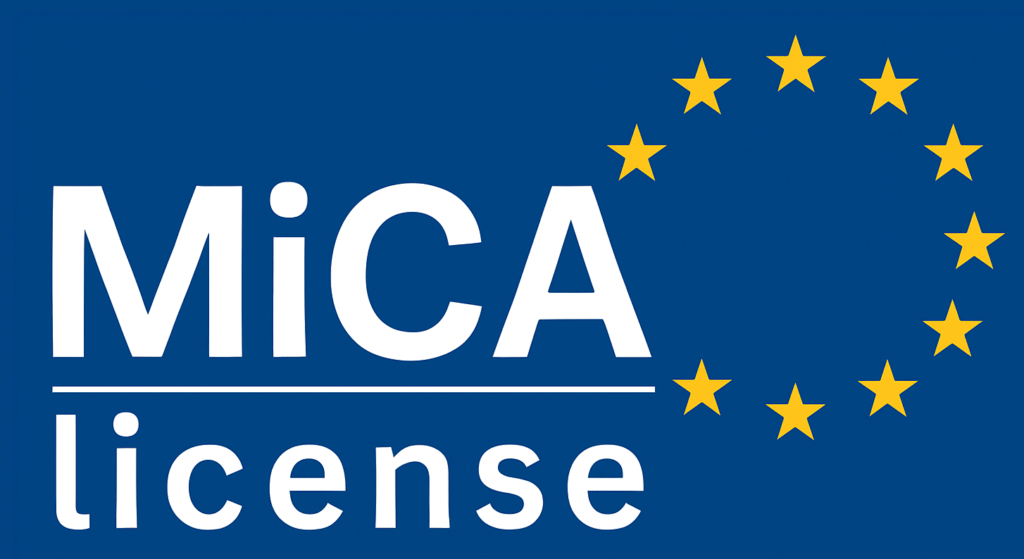
MiCA (Markets in Crypto-Assets) is the official regulation of the European Union that sets clear legal rules for crypto assets and service providers. Its goal is to protect users, prevent abuse, and ensure a unified, secure crypto environment across all EU countries.
Within the European Union, trading or investing in crypto is only permitted through platforms that are officially approved under the MiCA regulation. Using a non-approved exchange not only puts your funds and personal data at risk, but may also violate EU regulations, potentially leading to legal consequences.
We continuously monitor major cryptocurrency exchanges, and as soon as they receive MiCA authorization, we promptly list them on our website. However Bybit stands out as the first major platform to be fully MiCA-compliant, it has launched a seperate platform specifically for EU residents.
What Is MiCA?
MiCA — short for Markets in Crypto-Assets — is the European Union’s first comprehensive regulatory framework specifically designed for the crypto industry. Its purpose is to create a unified, transparent, and secure legal environment for crypto asset service providers (CASPs) and users across all EU member states. Adopted in 2023 and gradually coming into effect from 2024 onward, MiCA is considered one of the most advanced crypto regulatory systems in the world. It places strong emphasis on investor protection, market integrity, and financial stability.
Why Is MiCA Beneficial for EU Residents?
Legal certainty and consumer protection
MiCA brings legal clarity to both users and service providers. When a platform is MiCA-compliant, it means it adheres to strict EU standards regarding capital requirements, operational transparency, user fund segregation, and more — offering users a secure and predictable environment.
Protection against fraud and abuse
The regulation enforces strong anti-money laundering (AML) and know-your-customer (KYC) obligations. This significantly reduces the chances of fraud, market manipulation, and financial misconduct, making the space safer for all participants.
EU wide access – without borders
With a MiCA license, a crypto platform can operate across all EU countries without needing separate licenses for each jurisdiction. This “passporting” benefit encourages innovation, lowers barriers to entry, and boosts competition.
Long-term innovation and trust
MiCA doesn’t just regulate — it fosters innovation. By establishing a stable and transparent environment, it makes the EU a prime region for trustworthy, future-focused crypto projects to thrive.
Transparency
Under MiCA, crypto platforms are required to disclose detailed information about their services, associated risks, and the nature of the tokens offered. This empowers users to make well-informed decisions when buying, trading, or investing in crypto assets.
Trading on Non-MiCA Approved Exchanges
For individuals residing within the European Union, engaging in cryptocurrency trading through platforms that are not authorized under the MiCA (Markets in Crypto-Assets) regulation is not just risky — it may soon be considered a violation of EU financial law. As MiCA becomes fully enforceable across member states, using non-compliant exchanges could expose traders to serious legal consequences, including investigations, account freezes, and potential penalties.
Authorities within the EU are actively increasing oversight on crypto activity, and using unauthorized platforms is viewed as participation in unregulated financial operations. This may not only compromise the safety of your funds but also place you in direct conflict with regulatory frameworks designed to prevent money laundering, market manipulation, and investor exploitation. EU residents are expected to trade exclusively on exchanges that meet MiCA standards — platforms that are licensed, transparent, and held accountable under European law.
Those who ignore these requirements may find themselves facing scrutiny from tax authorities, financial regulators, or even law enforcement. In a regulatory environment that is quickly tightening, “I didn’t know” will not be a valid excuse. Compliance is not optional — it is a legal obligation. Trading outside of it could cost far more than you think.
Approved Exchanges
Bybit EU – Fully Compliant Exchange
An increasing number of crypto exchanges make serious efforts to align with MiCA regulations, yet Bybit stands out as one of the first major platforms to receive MiCA authorization — underscoring its strong commitment to regulatory compliance within the European Union. With a focus on transparency, security, and legal integrity, Bybit continues to meet and exceed evolving standards. This early adoption of MiCA not only reinforces its trustworthiness but also reflects a long-term vision for sustainable growth and innovation in the crypto space.
To fully comply with the European Union’s MiCA regulation, Bybit has launched a separate platform specifically for EU residents — Bybit EU. This means that all users located within the EU must register a new account on Bybit EU, even if they already have an existing Bybit account. Signing up takes less than 30 seconds and you can use the same email or phone number for registration which you already use on the main Bybit platform.
Since Bybit EU launched in early July 2025, over 10,000 users have registered within just 3 weeks — and the number keeps growing.
Semi-Approved Platforms
There are a few other cryptocurrency platforms which are already MiCA-approved, yet they need to take a few additional steps to reach full compliance; Coinbase, Kraken, Crypto.com, OKX, Bitpanda
As the regulatory landscape evolves, an increasing number of crypto exchanges are expected to obtain MiCA authorization across the European Union. Our platform will continuously monitor these developments and expand the list of MiCA-approved exchanges accordingly, ensuring that users always have access to up-to-date, compliant options within the EU framework.
This website operates independently and is not affiliated with, endorsed by, or officially recognized as a publication of the European Union or any of its institutions. Certain links herein may constitute affiliate links, through which remuneration may be received upon user interaction. The content provided is for informational purposes only and does not substitute professional legal, regulatory, or financial consultation. Engagement with third-party services is undertaken at the user’s sole discretion and risk.